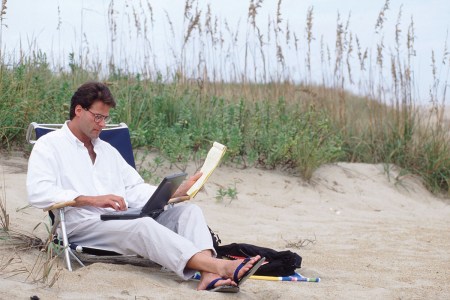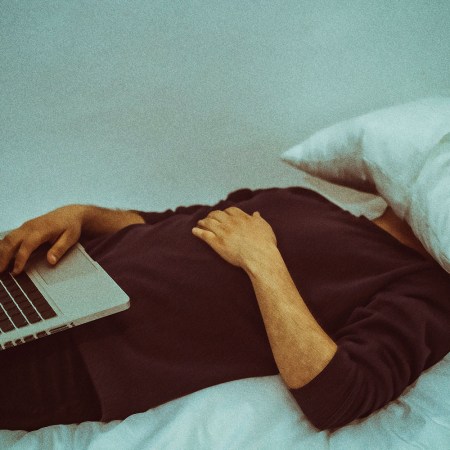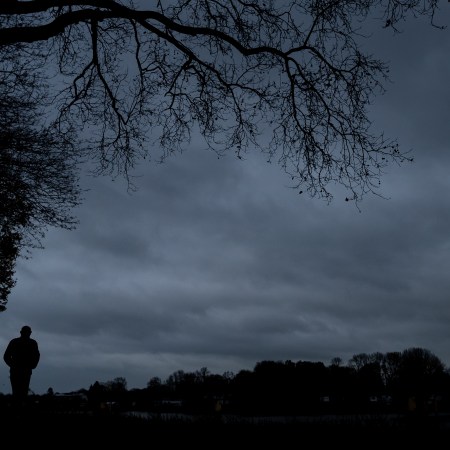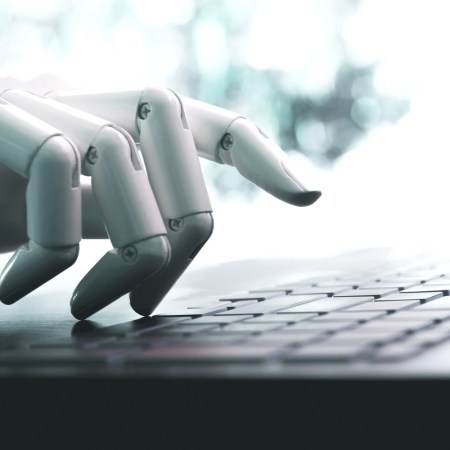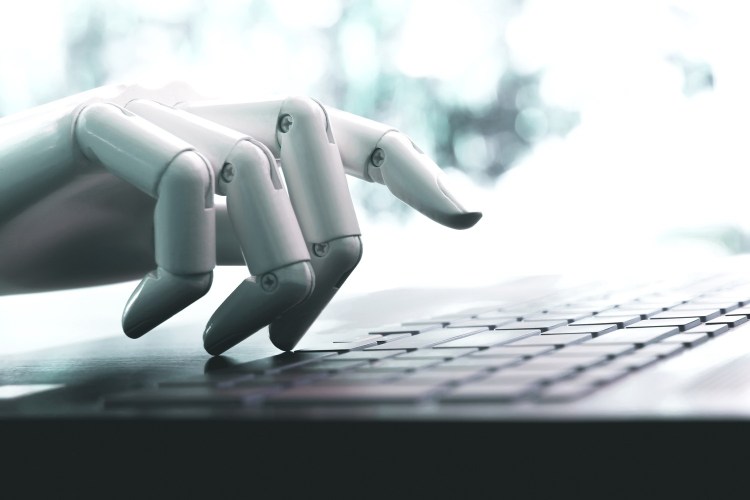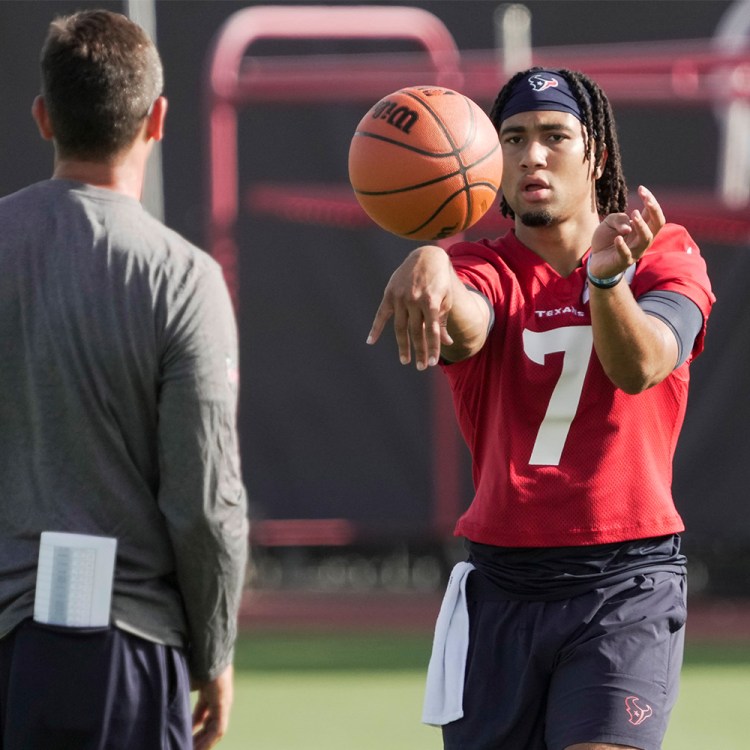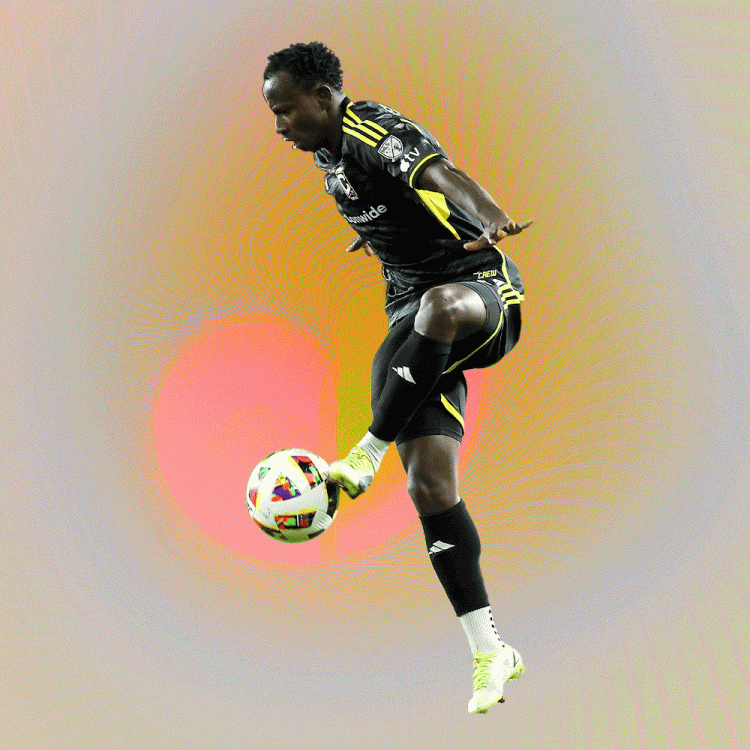Pierpoint’s meeting with HungerFix is at 9 a.m., so Hari Dahr has until 6 a.m. to finish the book and get it to the printer. He’s a newb at the office, but evidently a pro at all-nighters. Application deadlines, final papers, test cramming — who knows how many times he’s done this before? He buys a plastic bag’s-worth of Red Bulls, pops some Adderall and puts his over-ear headphones on tight. Swells of Montreal DJ Jacque Greene’s “Do it Without You” bounce off his cranium.
It’s a hypnotic house number that repeats the line “I do it without you” 28 times in three and a half minutes. Indeed — Hari’s been left to lone wolf tomorrow’s all-important deck in an empty office. The rest of his Pierpoint peers have long since departed to dine with clients, drink with their group or gather some sleep before the next day’s meetings. Hari moves names and numbers and bullets around until even the office’s motion-activated lights turn off, forgetting he’s there. When he’s finally done, a bit before dawn, he whoops and dances in celebration…before collapsing at his desk for a quick nap.
The next morning, Hari realizes he’s made a terrible mistake. On one of the pages, he’s accidentally selected Times New Roman font instead of Helvetica. It’s too late to reprint the books. He pleads with someone on the phone, tears spilling down his face, before fleeing to a bathroom stall. A prankster has graffitied the steel door. It says “Look left.” Hari obliges. “Look right.” Okay. “Look up.” He squints: “Wanker.” Hari has a heart attack and dies.
Pierpoint managers acknowledge the tragedy to the rest of the analyst-hopefuls in Hari’s young class, urging them to avoid speaking to their own friends or family about what happened, let alone the press. The firm decides the best way to honor Hari’s memory is to avoid asking too many questions and move on. Behind closed doors, one higher-up cracks: “Lesson is, don’t hire people who really need the job.” Hari’s boss informs the rest of his group that HungerFix’s flight has been cancelled. They won’t be able to make it for their 9 a.m., after all.
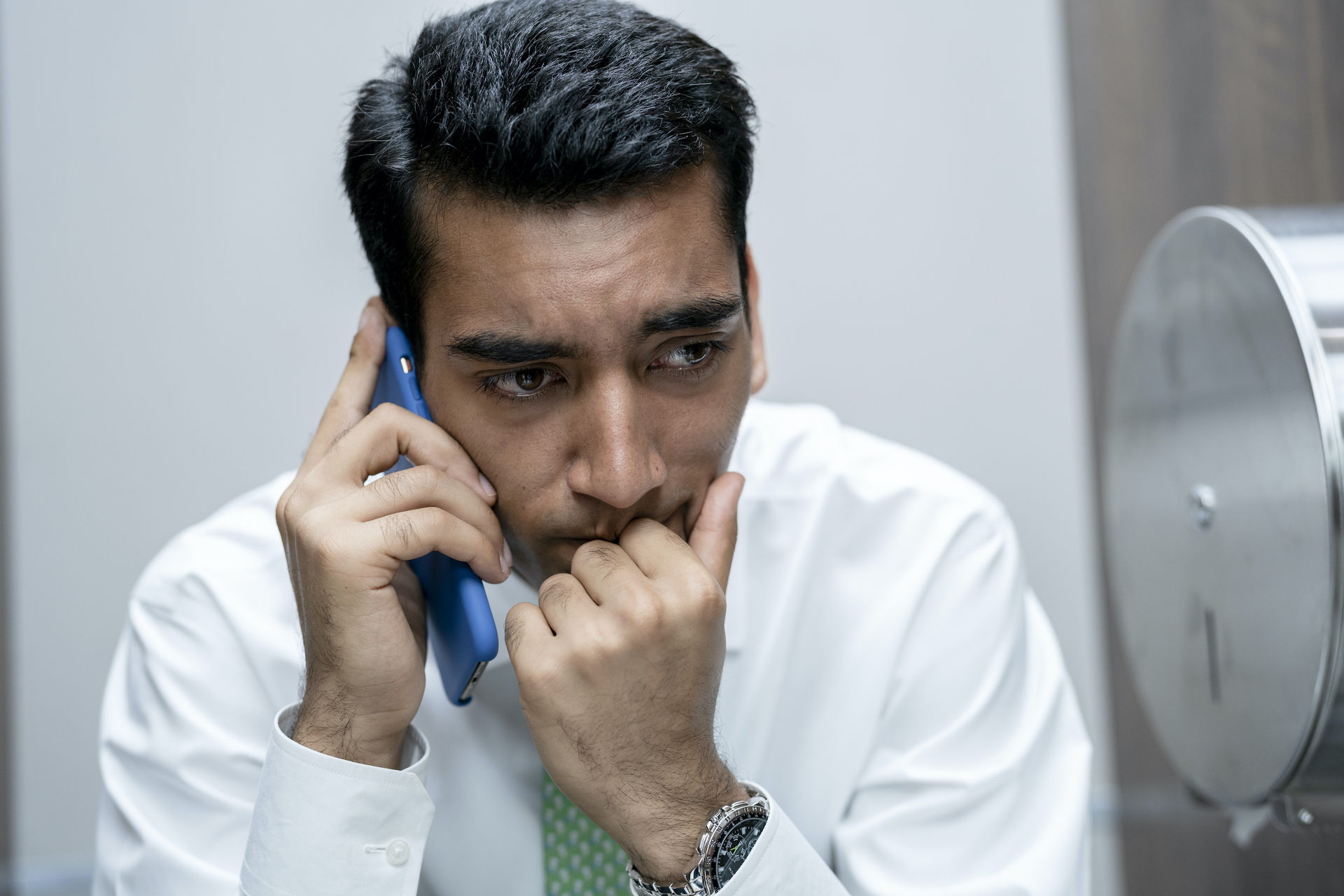
So concludes the scintillating pilot of HBO Max’s Industry, which debuted in November 2020 and wrapped its second season earlier this fall. In some ways, it’s difficult to separate the events of the show’s initial offering with the stereotypical spectacle of its streaming service; if HBO has green-lit a project, something tweet-worthy will likely happen in it. Shit needs to go down. Hari’s death, then, could be perceived by some viewers as the overactive imagination of an overwrought writer — whatever it takes to raise the stakes.
“I’ll sleep when I die”
And yet, the incident has its IRL analogs: over the years, a number of hungry/dollarstruck/impressionable interns and analysts have died while working at top firms in New York or London. The moment life slips away looks a little different each time (overdosing on drugs, falling off a terrace, slipping into a seizure, committing suicide), but the response is generally the same. The parents confirm their child was spending a lot of time at the office, the press publishes some point and counterpoint think pieces, the bank promises an internal investigation. Maybe someone is fired, maybe something changes.
Historically, this reflexive cadence has ignored the fact that a pile of bodies is a pretty grim barometer for determining whether work-life balance has gone awry. And while Wall Street’s “I’ll sleep when I die” #grindset might get harder to defend whenever someone…actually dies, a horrible headline every couple years can also come across as a distractive outlier. It casts the whole operation as outlandish and otherworldly — like, you know, something you might see on HBO — and makes it even easier for those not involved in the industry to dub the operation negligent or evil…which ignores the fact that investment banking’s still a pretty desirable career lily pad for many college students, if not the rosy endgame it used to be.
In truth, there are thousands of shades of grey in each year’s fresh crop of young analysts. Some take to the job, others don’t. Some find mentors in managers or friends, others feel lonelier than ever. Just about everyone, though, is working too much and sleeping too little. This often invites a debate on either righteous or unsympathetic grounds from third-party actors online (the former think the arrangement is inhumane, the latter say quit whining: they’re being paid $150,000 a year out of college).
Introducing sleep debt
Yes, it’s a timeless and fascinating morality versus ambition argument. It’s also been covered by midnight spliff-passing undergrads ad nauseam for decades. We’re not going to get anywhere on that front alone. But perhaps change is possible when we choose to focus on something tangible and trackable, like sleep debt. And analysts (including the people they report to, and the people they report to…you may be sensing a theme in the industry) have it in droves.
Does Anyone Actually Work on Fridays Anymore?
The prospect of a formal “four-day workweek” is a hot debate topic on LinkedIn these days. But have a number of Americans started secretively observing it?We reached out to former analysts at Goldman Sachs, Jefferies, Deutsche Bank, UBS, RBC, and Houlihan Lokey, and asked asked them to reflect on their years spent working for some of the world’s biggest firms, with a specific focus on sleep (or lack thereof). All manned posts for these banks at some point in the last five years, and almost all of them now work for different companies, in the same industry or an adjacent one. Most were eager to share their workplace memories, though came across as a little shellshocked after sifting through them, as if they’d kept them locked away in a drawer.
“I was indifferent to everything at that time,” remembers Alex, a former analyst at Jefferies. “I felt like a zombie. The experience was worse than I expected it would be going in. Looking back now, I should have pushed back more. The bonus ranges didn’t differ all that much and it’s not as if the extra hours benefitted me marginally more than the next guy.” Alex rates both his mental and physical health at that time as “lacking”; he averaged under five hours of sleep each night, generally heading to bed around 2 a.m. and waking up somewhere between 6 a.m. and 8 a.m. The specter of a potential all-nighter always loomed, though.
“I had at least five nights where I left the office around 7 a.m., went home to shower and change and then came back,” he says. “Those were typically the final nights before an important pitch or deadline. I might have had my associate with me for a couple, but largely the onus was on me to print the books and get them to the managing director before the meeting or flight. I would strictly rely on coffee and snacks. These nights weren’t acknowledged or rewarded. I was always physically, mentally and emotionally exhausted. Late nights, though not always to that extent, happened frequently enough that I never had time to reset.”
The toll of late nights
This system keeps most analysts in a near-constant state of fight or flight. It can feel less like hard work — which most of them (overachievers since the sixth grade) are used to and comfortable with — and more like a social experiment. Jonah, who spent two years at Credit Suisse, says: “The job was much harder than I expected. Everyone knows the hours are going to be long, but what’s truly different about investment banking is the consistency of those hours. It’s not like midterm or finals weeks at school, where you have this really intense one or two-week stretch. There are periods where you go through intense one to two-month stretches (sometimes even longer) and it’s really hard to get comfortable with that.”
Early on, Jonah acknowledges he was oddly “energized” by the long hours. But that attitude quickly “devolved into frustration and cynicism.” His only way to blow off steam was going out on Friday and Saturday nights to drink with friends — meaning the only nights he was able to catch up on sleep, he was headed to bed on a belly of alcohol…which trapped him in a ceaseless cycle where recovery was virtually impossible. During this time Jonah never exercised, never cooked a “legitimate meal,” and never left the office before 10 p.m. “If you left before 10 p.m. as a first year everyone would look at you,” he says.
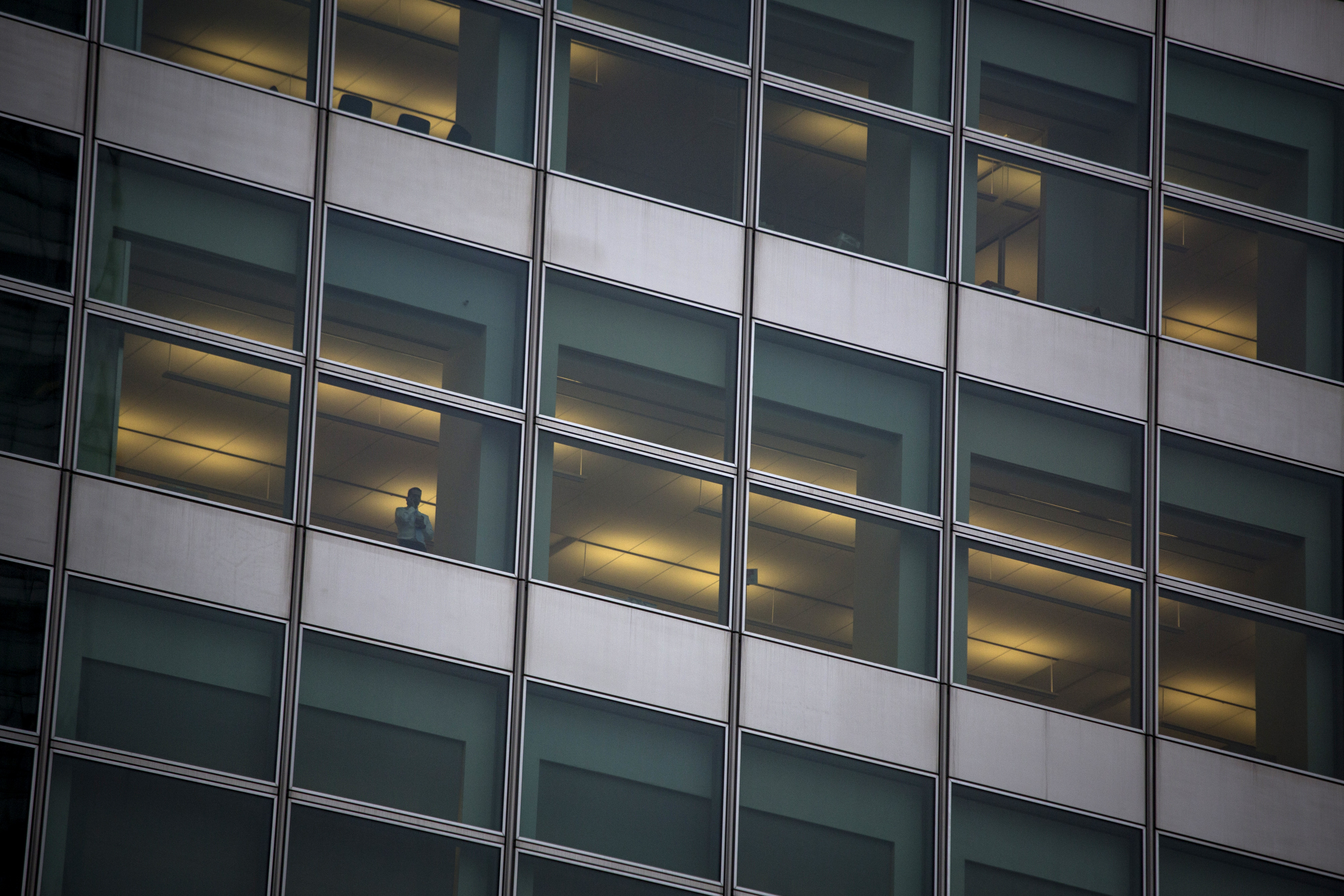
Over one grueling stretch at Houlihan Lokey, Zoe estimates she worked 100-hour weeks for two months straight. “Maybe even 110 hours a week,” she says. “There’s no amount of money I would take to go back to a job like that. I feel like it took years off of my life. I would probably have a heart attack if I worked there for several more years.”
Zoe remembers “repeatedly seeing the sunrise while working,” and longing for the solace of just one 30-minute run. (Whenever she did find the time, it was usually during a lull after dinner, and she was forced to run with a flashlight.) “There was one Friday night where I went to bed at two in the morning and had to wake up for a Saturday call at 9 a.m. I then worked all day that Saturday. I got out of bed every day with a pounding headache from sleep deprivation. When I woke up and remembered what my life was, I was filled with pure dread at the thought of having to get through one more day until going to sleep next. I had no appetite because my lack of sleep. The stress threw me so out of balance, I lost probably 10 to 15 pounds.”
Meanwhile, some we spoke to developed the inverse relationship with food; they’d munch on Seamless orders and office snacks throughout the day, or eat in the middle of the night in order to help stay awake, contributing to the sort of weight gain you’d expect after 10 years of sitting in an office, not 10 months. Across the board, former analysts remember eating meals alone — usually while sitting at their monitors or scrolling through their phones — and finishing them in 15 minutes or less. That’s not too dissimilar from most office lunches, to be fair, but many were accustomed to eating perversions of breakfast, lunch and dinner in this manner.
Was it all worth it?
As these former analysts now have coveted jobs in fields like private equity, venture capital and real estate investing, some retain less sympathy than you might expect for their past selves. “Got me where I am today” isn’t an unheard-of refrain, and many are quick to celebrate the friends they made in the trenches, or invoke the associates who could be relied on to “stay up” for a good portion of an all-nighter (say: until 3 a.m. or so).
Still, just about everyone can recall a time that they tried to take a little vacation, even just a long weekend away — if they weren’t getting the “rest” part of R&R, they figured, perhaps they could cash in on some relaxation — and the attempt blew up in their face. Emma, a former employee at UBS, nearly missed a family ski trip on account of working until 2 a.m. on her birthday. She remembers being stuck on a delayed plane for four hours, the fact that it was her birthday weekend barely a blip on her radar, her “biggest worry” being “What if I can’t hotspot to get my work done?”
Jonah tried to take a break over Memorial Day Weekend, during his first year of banking. “Lo and behold, Saturday comes around and I get blown up by multiple assignments,” he remembers. “By some miracle I was able to push my workload to the next day. I came back at the crack of dawn from where I was and proceeded to go right into the office on that Sunday. I worked until late at night, printing materials. When I came back to my empty apartment I felt like crying. All I wanted was a free weekend. It felt like I was no longer in the slightest bit of control of my life. That’s a terrible feeling. I actually was too tired to cry and ended up passing out. One of the cases required me to be in Boston the next day. I woke up early the next day and caught my flight. On the plane I kept thinking to myself that I needed to make a change. To be completely honest, I never did make a meaningful change.”
Why Are Some Men Obsessed With Waking Up Super Early?
Interrogating the cult of the early riserLast year, 13 Goldman Sachs first-year analysts brought forth a survey to their managers alleging “long work hours, pressure to meet unrealistic deadlines and abusive behavior from superiors.” One of the project’s authors, who’d had a difficult childhood in the foster care system, said the stress and sleep deprivation he experienced at Goldman was worse. The testimonials were serious enough that CEO David Solomon promised to “strengthen enforcement” of the “Saturday rule” (no work from 9 p.m. Friday to 9 a.m. Sunday, except in extenuating circumstances), yet also drew jeers from throughout the industry. A line from a Bloomberg op-ed offers a decent summary of the opposition argument: “They’re real sad…but what is bad for junior-employee lifestyle is generally good for the firm; the fact that everyone is working too hard means that there’s a lot of lucrative work to do.”
In other words: shut up. You’re being paid in the top 1% of your peer group, and if you stay the course, you’ll share in the real riches down the line. But there are some alarming signs that the schedule of a first-year analyst isn’t a one-off “hell year,” preluding a lifetime of professional equilibrium. In fact, it appears to codify unhealthy routines and warp workweek expectations, which can then persist throughout one’s entire life. As efinancialcareers points out: “Finance professionals aged over 40 are almost as likely to have less than six and five hours’ sleep as those aged between 20-25.”
The health risks of sleep debt
Decades of sleep debt is guaranteed to wreak havoc on all of your vital organs, but it’s especially tough on the heart. Cardiologists are “no longer shocked” to diagnose 30-year-olds with cardiac arrhythmia or myocarditis, two heart conditions that drastically increase one’s risk of a heart attack. Excessive work, chronic stress, fast food, drug abuse, a sedentary existence — the combination would be overwhelming even if somehow accompanied by eight hours of solid sleep each night. But it isn’t, of course, because those things rule any sort of consistent sleep schedule.
And they rule out a quality one, too — how is the brain supposed to reach the REM stage of sleep when it’s headed to bed so addled and distracted? REM, remember, is the deepest and most restorative stage, where all the good stuff happens: the brain files away important memories, eases the soreness in your limbs and gives your immune system a much-needed boost, among other magical benefits.
But if today’s employees (young and old) are indeed getting more chances to reach REM, as banks’ higher-ups claim in pressers, emergency rooms haven’t been seeing much of a difference. Doctors have been saying the quiet part out loud for years. As one cardiologist pointed out to Insider: “In investment banking, I think whatever they [the banks] say… the hours and the pressure that is put on these guys is huge. So as much as they may be doing things to improve — I don’t think it’s changed at all.”
A protected Saturday, after all, just means a nightmare of a Sunday evening. One miffed recruitment class just means the next one will need to be more closely vetted. And so on and so forth. If things don’t change when the economy’s sailing (because the firm is “lucrative,” and there’s so much to do), why would they change with a recession looming, when all the king’s soldiers are finally back on physical premises (a reality industry CEOs have publicly craved for the better part of two years)?
Other industries have their own sleepless traditions: look to entry-level attorneys, personal assistants in the entertainment industry, or tech engineers in Silicon Valley. Over the last few weeks, Twitter employees have even started sleeping at the office to meet new head honcho Elon Musk’s vision of a “hardcore” workplace.
Does this make workers more productive? No, obviously. There isn’t a single reputable scientific study claiming fewer hours of sleep makes employees more productive. But in systematically toppling the pillars of workers’ lives — their relationships, their hobbies, their desire/energy for exercise, nature, entertainment, cuisine — employees do become more devoted and desperate…which, for too many executives, offers more value than productivity anyway.
Is this by overt or subconscious design? It doesn’t really matter. Sure, there’s a lot of work to do and only so many hours in the day. But there are also many prospective applicants across the country who narrowly miss securing first-year analyst jobs. Perhaps funds could be diverted toward hiring more people and divvying up the mountain of work, instead of putting 22-year-olds through brain-curdling bootcamps year in and year out. At the very least, it’s high time a conversation on sleep debt takes centerstage.
When a 55-year-old banker dies of heart attack, those who knew him still shake their heads and murmur “He was too young”…but you’re not going to see national headlines. After all, he didn’t die in an office bathroom stall after listening to dance music for 15 hours straight. But whatever got him in the end, however boring and forgettable a middle-aged goodbye it may seem (obesity, diabetes, hypertension), it likely started in a “fast-paced and exciting environment,” around other “self-starters” and “solution-oriented strategists.”
You could argue for a flashy initiative here (analysts being required to wear WHOOP bands/Oura rings to prove they’re attaining a certain length or quality of sleep each night), or just hope for a compassionate shift in the industry (no more asking the most vulnerable employees “Don’t stay up all night, but is this doable?”), but neither would come naturally.
Because while this industry makes dreams come true, it is a dreamless one at its core. Many graduates of finance’s not-so-secret night school carry all those sleepless nights as a badge of honor, and as well they should — it takes mettle to stay the course, to make the most of an opportunity. But what of the other things they carry? What of the extra weight in the shoulders, the bags under the eyes, the irregular pumping of the heart? When will those honors get their due?
Whether you’re looking to get into shape, or just get out of a funk, The Charge has got you covered. Sign up for our new wellness newsletter today.

